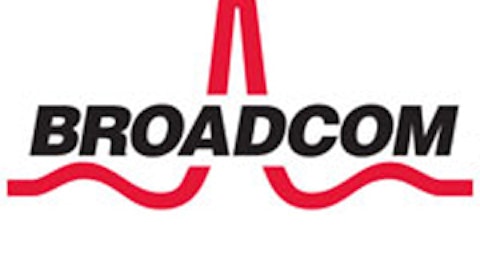Hedge funds generate a substantial portion of their alpha from the small-cap space. On the whole, public research about the little guys tends to be less efficient. According to our own analysis, investing in hedgies’ most popular small-cap picks has produced an alpha of close to 120 basis points per month. We started publishing a quarterly newsletter at the end of August and shared the stock picks of this strategy. Since then this strategy returned 14.3% (between September and December) vs. 2.1% for the S&P 500 index (see the full details of our small-cap strategy).
While input from prominent investors is always appreciated, it’s important to take a more detailed look at each company, analyzing the specific reasons why hedge funds may be long.
Dan Loeb and Bill Ackman, two top-tier hedge fund managers and Herbalife rivals, have been in the news quite a bit recently, so we’re going to extend our analysis to this duo. Focusing on market caps between $1 billion and $5 billion, let’s take a look at some of the top small-cap stock picks Loeb and Ackman have in their portfolios.
According to the latest 13F filing from Pershing Square Capital, Ackman’s fund, its top small-cap pick was real estate developer Howard Hughes Corp (NYSE: HHC). Pershing Square maintains a relatively large but concentrated equity portfolio in general, and Howard Hughes comprises about 2.8% of its $8.9 billion worth of holdings (see all of Bill Ackman’s favorite stocks here).
Ackman helped the company spinoff from General Growth Properties—another one of his holdings—and since hitting the markets in November 2010, shares of Howard Hughes have returned 91.4%. Whitney Tilson, one of Ackman’s best buds in the hedge fund industry, gave an updated presentation on Howard Hughes at last year’s Value Investing Congress. As we mentioned in our original analysis (see the full recap of Tilson’s presentation), the primary bullish thesis here is that HHC’s assets are priced less than their fair value.
Tilson, who credited the investment idea to Ackman, notes the company’s properties in Las Vegas, Houston, Honolulu and South Street Seaport as particularly attractive. Shares of HHC currently trade at a price-to-book ratio below 1.3x; this is nearly a 13% discount to its industry’s average.

ALEX spun off the smaller Matson Inc. (NYSE: MATX)—its shipping and logistics segment—into a separate entity last year, likely a move to stimulate shareholder value. The sell-side expects Alexander’s earnings to grow by close to 44% over the next year, and analysts’ five-year EPS forecasts fall in the range of 10% on average.
It’s worth mentioning that Ackman also holds a decently sized share in Matson, slightly larger than his position in Alexander. Over the long run, a spun off company tends to provide investors with more value than its parent, though it’s a bit too early to tell if this historical precedent holds true in this case. Over the past three months, shares of Alexander have actually outperformed Matson by about 20 percentage points. Both stocks have been in the green.
At a forward P/E near 19x and a sales multiple of 0.7x, Matson looks like the better value play at the moment, and five-year earnings growth is expected to be near that of Alexander. Alexander currently trades at a forward P/E of 50.4x and sports a sales multiple above 4.0x. As of his last 13F filing, Ackman held almost twice as many MATX shares as he did ALEX, so it’s quite possible he’s banking on long-term value more so than recent appreciation.
What about Dan Loeb?
When looking at the holdings of Dan Loeb and Third Point, two smaller names stick out in particular: Wesco International (NYSE: WCC) and Hillshire Brands (NYSE:HSH). Wesco sits at No. 12 in Loeb’s 13F portfolio, while Hillshire is two spots behind the position. Both stocks have gained an average of 4.1% over the past month, and each presents a solid investment opportunity moving forward.
Wesco, the distributor of various electrical and industrial supplies, currently trades at a lowly forward earnings multiple near 11x and sports a PEG ratio close to 1.0. The Street expects earnings to grow by over 30% in the next 12 months. Of the 20 analysts that cover the stock, 12 hold buy ratings, and the average price target represents a 9-10% upside from current levels near $68 a share.
Hillshire, meanwhile, was part of a spin off from Sara Lee last summer. The packaged meat producer had a nice earnings beat in its latest quarter (Q1 FY2013), reporting a 51-cent EPS compared to a 32-cent consensus. Hillshire cited lower costs and strength in its top-tier brands as drivers behind the outperformance, and reiterated its 2013 EPS guidance of $1.40-$1.55.
If the company can meet on the high side of this range, this would mark an 8% growth from one year earlier, falling right in line with the sell-side’s annual EPS forecast over the next half-decade. A forward P/E of 17.4x is slightly elevated in comparison to key competitors like Hormel (15.8x) and Unilever (16.1x), but it’s important to note that the stock actually becomes a value play if Hillshire continues issuing EPS beats.
The company reports second quarter financials on January 31st—another solid performance could have investors feeling rather cheery by Valentines Day.
For more related coverage, continue reading here:
Steve Cohen’s Most Promising Stock Picks
Hedge Fund Are Buying Herbalife and These Other Stocks
Dan Loeb — Third Point Q4 2012 Investor Letter
Disclosure: I have no positions in any of the stocks mentioned in this article





